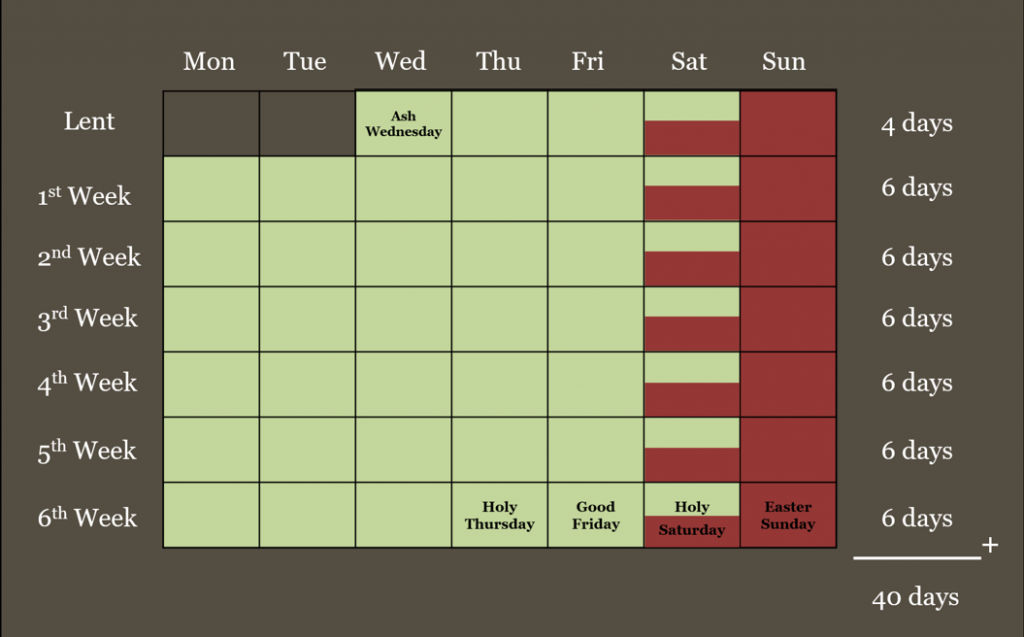Our theme today is: Have mercy on yourself, because God does. For the past three weeks, He’s challenged us to overcome our sloth, to take more responsibility in our prayer, and to root out poor language. If we’ve been with Jesus in the wilderness and facing our demons, we shouldn’t be exhausted, but should be tired. So, God wants us to rest.
[Watch Fr. Justin’s homily delivery here.]
St. Francis De Sales wrote, “It is sometimes necessary for us to relax both mind and body by some kind of recreation” (Introduction to the Devout Life, 31), and then tells a famous story about St. John the Apostle, who one day was seen by a hunter holding a bird and stroking it. The hunter was shocked that such a holy man was wasting his time on a useless activity. So, St. John asked, “Why don’t you always carry your bow taut?” The hunter replied, “If it were always bent… it would lose its spring.” The saint said, “Don’t be surprised then if I sometimes relax my close application and attention of mind a bit and enjoy a little recreation so that I may afterwards apply myself fervently to contemplation.”
Today, the Church is halfway through her Lenten journey, almost at the Resurrection, and it’s a moment of joy. The fourth Sunday of Lent is called ‘Laetare’ Sunday, Latin for ‘Rejoice,’ because the first words of the Entrance Antiphon are: “Rejoice, Jerusalem, and all who love her.” Rose vestments are used because they’re a lighter, more joyful version of violet.
Here are four truths to receive from today’s Second Reading.
1) St. Paul writes, “God, who is rich in mercy, out of the great love with which he loved us even when we were dead through our trespasses, made us alive together with Christ” (Eph 2:4-5). St. John Paul II wrote an encyclical on God’s being ‘rich in mercy’ and said that Jesus is mercy itself (Dives in Misericordia, 2,2). Thus, if we want to understand mercy, look at Jesus’ actions. At the beginning of His ministry, He loved people who were suffering: He healed the blind, forgave sinners, reached out to the poor, etc.
That’s what mercy is: it’s the kind of love that meets suffering. For example, when a man and a woman fall in love, is that mercy? No. When I affirm someone, is that mercy? No. Why? Because there’s no suffering there. But when I cheer someone up, that’s mercy, because someone’s feeling down. Mercy is when love encounters suffering.
The Church expects that today we’ll be tired from our Lenten penances, and so offers us mercy. In the spiritual life there has to be a balance between giving and receiving. Lent has this balance: Sundays during Lent are not days of penance; they are days to relax the bow, so to speak, and receive mercy. But the other days during the week are days to face our demons. Six days for six weeks plus the four days starting on Ash Wednesday, and that gives us 40 days in the wilderness. Thus, every Sunday, we’re supposed to rest! But that means on the other six days, work!
To be more specific, we should work for five and a half days, because Catholics follow the Jewish tradition of starting Sunday the night before with what’s called First Vespers.
So, we should start having mercy on ourselves Saturday night. That’s why Sunday Mass is on Saturday night, and Christmas starts on Christmas Eve.
The whole liturgical calendar has this rhythm of giving and receiving. It has four levels of celebration: Ferial (meaning daily), memorial (remembering a saint), feast, and solemnity (meaning it’s solemn). Whenever there’s a solemnity during Lent, the Church asks us to rest and celebrate. This Friday, March 19, is the solemnity of St. Joseph, so we can eat meat. March 25 is the solemnity of the Annunciation, so you should receive mercy those days. However, we can only appreciate these celebrations if we’re eager in our Lenten penances. If we’re slothful, these celebrations will mean nothing to us. So, the adage of rest hard, play hard applies in the spiritual life.
By the way, if some of you are thinking, “I gave up complaining or gossiping for Lent, so now I can do it again on Sundays,” no you can’t! Giving up a sin is a good action, but not a Lenten penance. We’re supposed to give up sin all the time.
2) St. Paul says, ‘God… out of the great love with which he loved us even when we were dead through our trespasses, made us alive.’ What kind of death and life are we discussing here? Spiritual life. God loves us even when we’re spiritually dead. Perhaps we’ve committed mortal sins and haven’t been to Confession in a while, and the temptation is just to avoid Confession; we get used to being in a state of mortal sin. Today’s a reminder not to get complacent. God wants to bring us back to life—let’s receive this with soft hearts.
Now, let’s say we’re in a state of grace, are we living the fullness of life? Because sometimes we who love Jesus don’t take care of ourselves. Jesus came to give life in abundance, so here are a few questions: Do we take care of our body? Do we sleep enough? How joyful are we? When we suffer, do we suffer well? Sometimes we suffer poorly, precisely because we’re not doing God’s will and renewing ourselves. Do we make time for true friendships, where there’s joy and virtue? Have mercy on yourself, because God does.
3) In the Reading, St. Paul uses the word grace three times: “For it is by grace you have been saved… So that in the ages to come God might show the immeasurable riches of his grace in kindness toward us in Christ Jesus. For by grace you have been saved through faith, and this is not your own doing; it is the gift of God” (5-8). The last part is the key: ‘This is not your own doing; it is the gift of God.’ Grace just means a free spiritual gift. Theologians usually distinguish between two types.
First, sanctifying grace is what we just talked about: We’re in a state of grace, we’re in friendship with God, and His life is living within us—we don’t earn this, but it comes through our Baptism. We lose it when we commit mortal sins, that is, when we freely choose to do something gravely wrong, and we know it’s wrong. We regain sanctifying grace in Confession, and increase it through Holy Communion.
Second, actual grace is a “supernatural encouragement”. Archbishop Exner gave the best explanation I ever heard: Actual grace is the temptation to do the good. Everyone knows what temptation is like. So, sometimes we feel an urge to pray, read, apologize, rest, fast, reach out to someone, etc. These are all temptations, so to speak, to do what’s good.
Do we feel any actual graces today? Ask the question we posed on January 1: What’s on your heart? What’s the greatest good we could do today? Where do we desire to grow? How do we want to heal? Once we sense an impulse, receive the gift!
4) St. Paul writes, “For we are what he has made us, created in Christ Jesus for good works, which God prepared beforehand to be our way of life” (8-10). We are ‘created… for good works.’ This is the criterion for a good Sunday: Does it help us to love and perform good works?
In my first year of priesthood, I never watched TV, but one time I was so tired that I sat on the couch and vegged for 30 minutes. You know what happened afterwards? I felt like praying again! That was good recreation and what St. John the Apostle was talking about. If our Sundays and solemnities are truly days of mercy, we’ll be more spiritually generous the next day. For example, if we take a nap, read a book, or play board games with people, and afterwards, are tempted to love our family more, that’s good!
Watching YouTube, checking social media, and relaxing can all be good, but if we don’t feel more encouraged to resume our Lenten penances the next day, then we have to adjust the amount or the content, or eliminate it all together, at least for a time. If our children are doing all these things and not growing in virtue and holiness, then cut it out.
You know a tree by its fruit. On January 3, I used the example of touching our hands behind our back as a measure of our physical flexibility, but most people forgot what was the measure of our spiritual health. It’s this: Evangelization. When I receive His mercy on Sundays, then I’m excited about evangelization, I want to tell the whole world about Jesus! If you’re having authentic mercy on yourself, you’ll be passionate about evangelization!
We end with a favourite quote from Pope Benedict XVI: “[Man] cannot always give, he must also receive. Anyone who wishes to give love must… receive love as a gift… As the Lord tells us, one can become a source from which rivers of living water flow… Yet to become such a source, one must constantly drink anew from the original source, which is Jesus Christ…” (Deus Caritas Est, 7,2).



